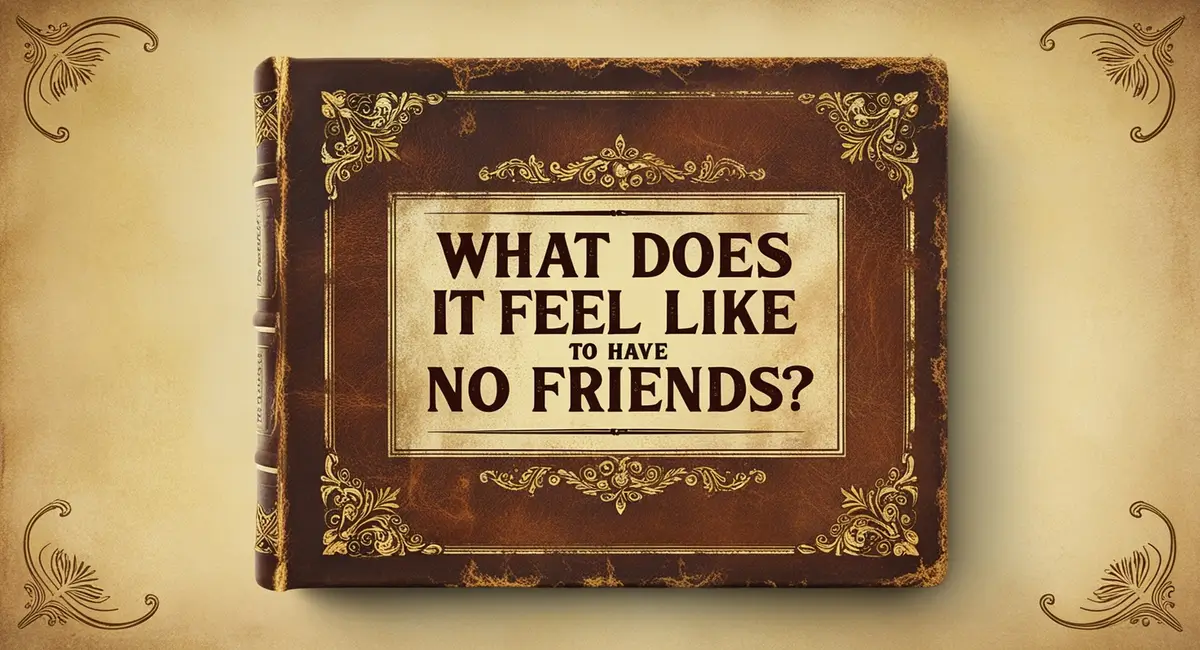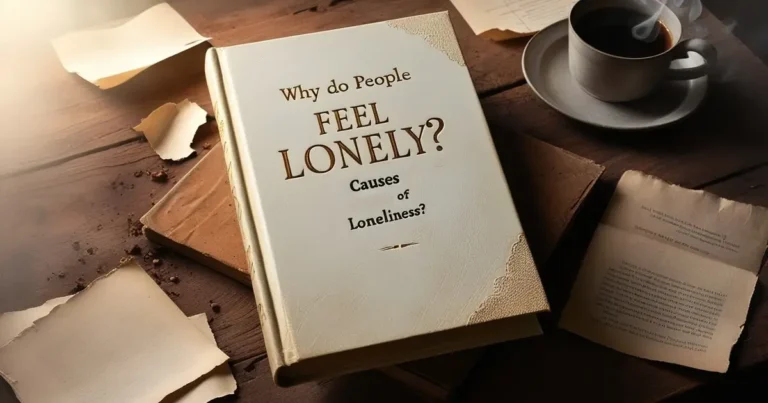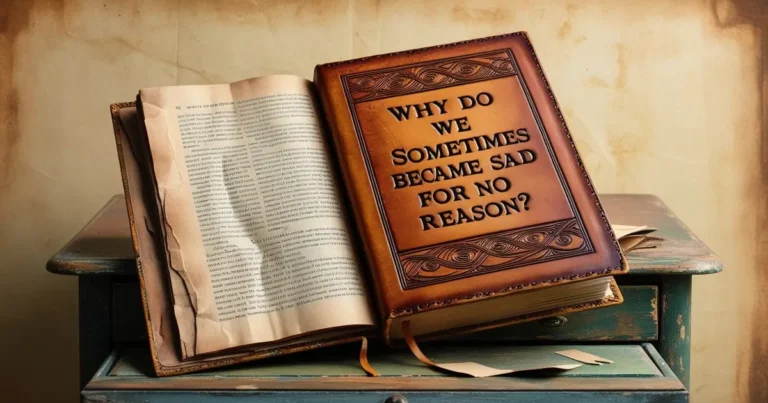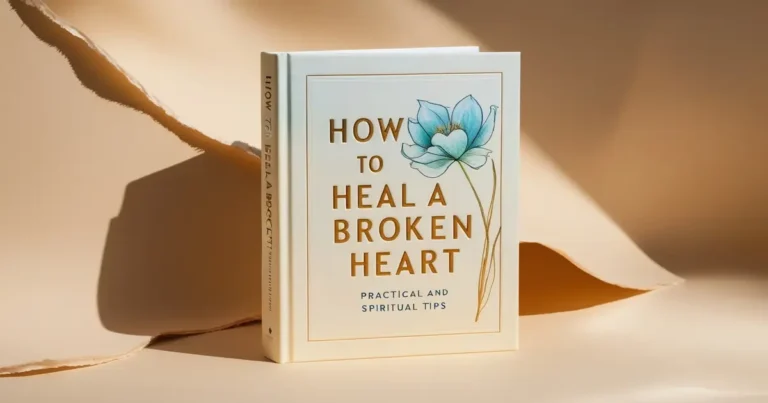What Does It Feel Like to Have No Friends? 5 Reasons & Tips
Loneliness is a feeling that’s hard to put into words until you’ve truly experienced it. For some, having no friends feels like an unshakable weight, a silence that follows them everywhere, and a void they can’t seem to fill. Let’s explore What Does It Feel Like to Have No Friends, understand the challenges, and learn how to cope.
Understanding Loneliness: The Pain of Having No Friends
The Emotional Toll of Loneliness
“Sometimes, it feels as though everyone else around me is living in a completely different world—a world filled with laughter, plans, and companionship. Meanwhile, I’m walking alone, invisible, with nobody to share even the smallest joys of life.”
Having no friends often leads to relentless self-examination. You begin to overanalyze every interaction and magnify your flaws.
“I would catch myself thinking, ‘What’s wrong with me? Why doesn’t anyone want to spend time with me?’ These questions would haunt me every day.”
This spiral of self-doubt is common. It’s easy to start believing that others see you the same way you see yourself—flawed and unworthy. This paranoia makes social interactions even harder, further isolating you from the world.
What Does It Feel Like to Have No Friends?
Feeling Out of Place in Social Settings
Even when surrounded by people, loneliness can persist.
“I’ve attended parties where I felt like a ghost, smiling politely while feeling like I didn’t belong. Conversations would flow around me, but never through me.”
On special occasions like birthdays, the absence of friends becomes even more apparent.
“I remember dreading my birthday because it felt like just another day. I would quietly hope someone might remember, but I was too scared to expect anything. Words have power, and I didn’t want to admit that I’d be celebrating alone.”
This lack of connection can turn everyday moments into painful reminders of solitude.
“In college, I’d see groups of friends walking to class together, laughing and planning their days. Meanwhile, I’d walk alone, hoping nobody noticed how invisible I was.”
The Effects of Loneliness on Mental Health
Emotional Challenges of Isolation
Loneliness doesn’t just affect your social life; it deeply impacts your mental well-being.
“At my lowest point, I started having thoughts that scared me. I told my parents I didn’t want to live anymore because it felt like I didn’t belong in this world.”
Feelings of worthlessness and emptiness often accompany loneliness. Humans are naturally social creatures, and the absence of meaningful relationships can make you question your purpose.
“I felt like I was stuck in a loop—trying to connect, failing, and retreating even further into myself.”
Social Anxiety and Its Vicious Cycle
Shyness and introversion can create a barrier to forming friendships, but loneliness exacerbates this.
“I became so paranoid about being judged that I stopped trying altogether. My mind convinced me that everyone saw me as a failure, so I avoided people entirely.”

Why Is It Hard to Make Friends?
The Challenge of Superficial Relationships
Friendships often require trust and consistency, which can be difficult to build.
“I’ve always been cautious with people. I’ve seen so many fake friendships, especially in college, where people only act like friends to gain something. It’s exhausting trying to figure out who’s genuine.”
Constant changes in personal beliefs or environments can also hinder friendships.
“I’ve evolved so much over the years that it feels like I’m a new version of myself every day. This makes it hard to maintain long-term friendships.”
The Fear of Vulnerability
Opening up to others can be daunting, especially after experiencing rejection or betrayal.
“I’ve had times where I trusted someone, only to feel let down. It’s easier to keep my distance and rely on my diary or my mom for emotional support.”
Coping with Being Alone
Finding Strength in Solitude
Although loneliness is painful, it can also be a time for self-discovery.
“I’ve learned to embrace being alone. I spend my time writing, reading, and focusing on myself. It’s freeing to not have to rely on others for validation.”
Engaging in hobbies or creative outlets can help redirect your energy. Journaling, painting, or simply exploring your thoughts can provide comfort.
Reframing Solitude as Empowering
Instead of viewing loneliness as a failure, see it as an opportunity.
“I’ve realized that being alone isn’t the same as being lonely. It’s a chance to get to know myself better and grow into the person I want to be.”
Building a connection with yourself is important.
“You don’t need a crowd to feel fulfilled. I’ve discovered that true happiness comes from within, not from the number of people in your life.”
Life Without Close Friendships: How To Live Life?
Appreciating Selective Connections
Not all friendships are created equal, and that’s okay.
“Friends are like trees. Some are leaves that blow away during storms. Others are branches that snap under pressure. But the rare ones, the roots, stay with you through anything. Those are the ones worth waiting for.”
Choosing quality over quantity in friendships can make your life more meaningful.
“I’ve stopped chasing friendships for the sake of it. Instead, I focus on building connections with people who genuinely understand me.”
Learning to Let Go of Expectations
Friendships come with expectations, but they shouldn’t define your happiness.
“I used to think that having no friends made me incomplete. Now, I see that I’m whole on my own. Friends are an enhancement, not a necessity.”
Conclusion: Redefining Friendship and Loneliness
Loneliness teaches you to value yourself in ways you never imagined. While the absence of friends can be challenging, it’s also an opportunity to grow stronger and more self-reliant.
“What does it feel like to have no friends?”
It feels like a journey—one filled with pain, reflection, and eventual self-acceptance. Life without close friendships can be lonely, but it doesn’t have to be empty. Embrace solitude, cherish your inner strength, and remember that the most important relationship you’ll ever have is with yourself.
Have you ever felt lonely or struggled with making friends? Share your experiences in the comments below and let’s support each other in this journey.
FAQs
1. What are the long-term effects of loneliness on mental health?
Loneliness can lead to chronic stress, anxiety, and depression over time. It can also impact physical health, increasing the risk of conditions like heart disease or weakened immunity. Prioritizing mental well-being through mindfulness or seeking support can mitigate these effects.
2. Why is it hard to make friends as an introvert?
Introverts often prefer deeper one-on-one connections, which can make casual socializing challenging. They may feel drained by large groups or struggle with initiating conversations. Finding like-minded individuals through hobbies or small gatherings can help.
3. How can I start coping with being alone effectively?
Focus on self-care activities like journaling, exploring hobbies, or practicing mindfulness. Building a strong relationship with yourself can transform solitude into a source of empowerment rather than loneliness.
4. What’s the difference between being alone and living a life without close friendships?
Being alone refers to physical solitude, which can be temporary. Living without close friendships means lacking emotional support and shared experiences. Both are different experiences that impact individuals uniquely.
5. Can loneliness have any positive impacts on personal growth? Yes, loneliness can encourage introspection and self-discovery. It provides an opportunity to strengthen emotional independence, understand your values, and focus on personal growth goals without external influence.

I’m Mustansar Khan – the person behind this little online haven. I invite you into the ebbs and flows of my life, sharing honest reflections on love, loss, friendship, and everything in between. Join me as I unpack the joys, struggles, and life lessons that make us gloriously, beautifully human.






